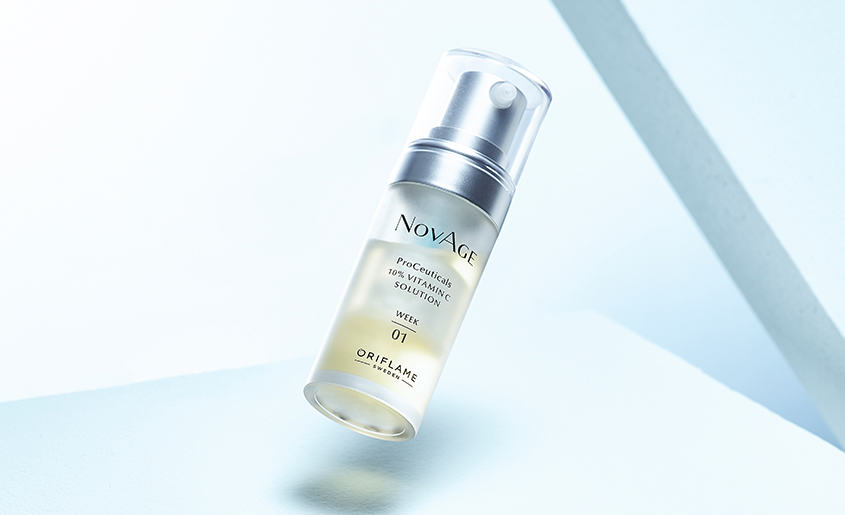
First of all, what exactly is vitamin C?
Vitamin C, or ascorbic acid, is an essential nutrient that is necessary for proper growth, repair, and maintenance of tissues in the body, including – you guessed it! The skin. Essential nutrients such as Vitamin C are crucial for normal body functioning, but cannot be produced by the body, so they must be obtained by way of supplements, or your diet – citrus fruits, green leafy vegetables, strawberries, broccoli, and red and green peppers are all excellent sources of Vitamin C. When it comes to your skin however, you’ll reap the most benefits of this powerful vitamin when you apply it directly to the skin, as topical vitamin C is significantly more potent than oral doses of vitamin C.
What are the skin benefits of using Vitamin C?
The better question to ask would be: is there anything this potent nutrient can’t do? There’s a reason for the hype around Vitamin C – it really does work. Whether we’re talking uneven skin tone, blemishes, fine lines, hyperpigmentation and other types of skin discolouration, or many of the other common skin concerns under the sun – there’s a good chance that Vitamin C can help remedy the issue, as it is one of the best-known ingredients for evening and illuminating the skin tone.
Vitamin C is renowned for its antioxidant properties, which makes it highly effective in neutralising the damage caused by harmful free radicals caused by daily exposure to UV rays and air pollution. It counteracts free radicals by boosting the skin’s natural regeneration process while also helping to repair damaged skin cells – for healthy, illuminated skin.
At the same time, Vitamin C works to inhibit the production of melanin in the skin, which can reduce hyperpigmentation and dark spots (perhaps caused by lazy days in the sun) and help to even out skin tone and boost skin radiance.
Last but certainly not least, Vitamin C helps boost the production of collagen and elastin in the skin – for firmer, plumper, more youthful-looking skin. Yes please! All in all, topical Vitamin C is like a tall glass of refreshing, freshly squeezed orange juice for your skin.

How can I incorporate it into my routine?
Vitamin C already plays a starring role in many skin care products such as toners, moisturisers, face masks, and mists. However, the most efficient way to deliver it to your skin is usually by way of a potent, targeted treatment designed for effective absorption. Keep in mind that for best results, you should always apply Vitamin C after cleansing, but before your moisturiser. Last but certainly not least, always check the expiry dates of your Vitamin C treatments, as well as their specific usage instructions – this nutrient can break down when exposed to light or air, so it’s important to follow the instructions for use.
Not all Vitamin C is created equal
Another thing to keep in mind when adding Vitamin C to your routine is the form of Vitamin C being applied. L-Ascorbic Acid is the purest, most chemically active form of Vitamin C, and is most effective when it is fresh (much like a fresh glass of orange juice). However, it is also notoriously unstable, and as previously mentioned, rapidly loses its potency when exposed to light, air, or contaminants – that’s why it requires very precise conditions to effectively deliver its antioxidant power to the skin.
Is there anyone who should avoid Vitamin C?
While Vitamin C can be used on all skin types, if you are not sure how your skin will react to the product for the first time, you can do a patch test, as Vitamin C treatments can cause some tingling or slight discomfort.



